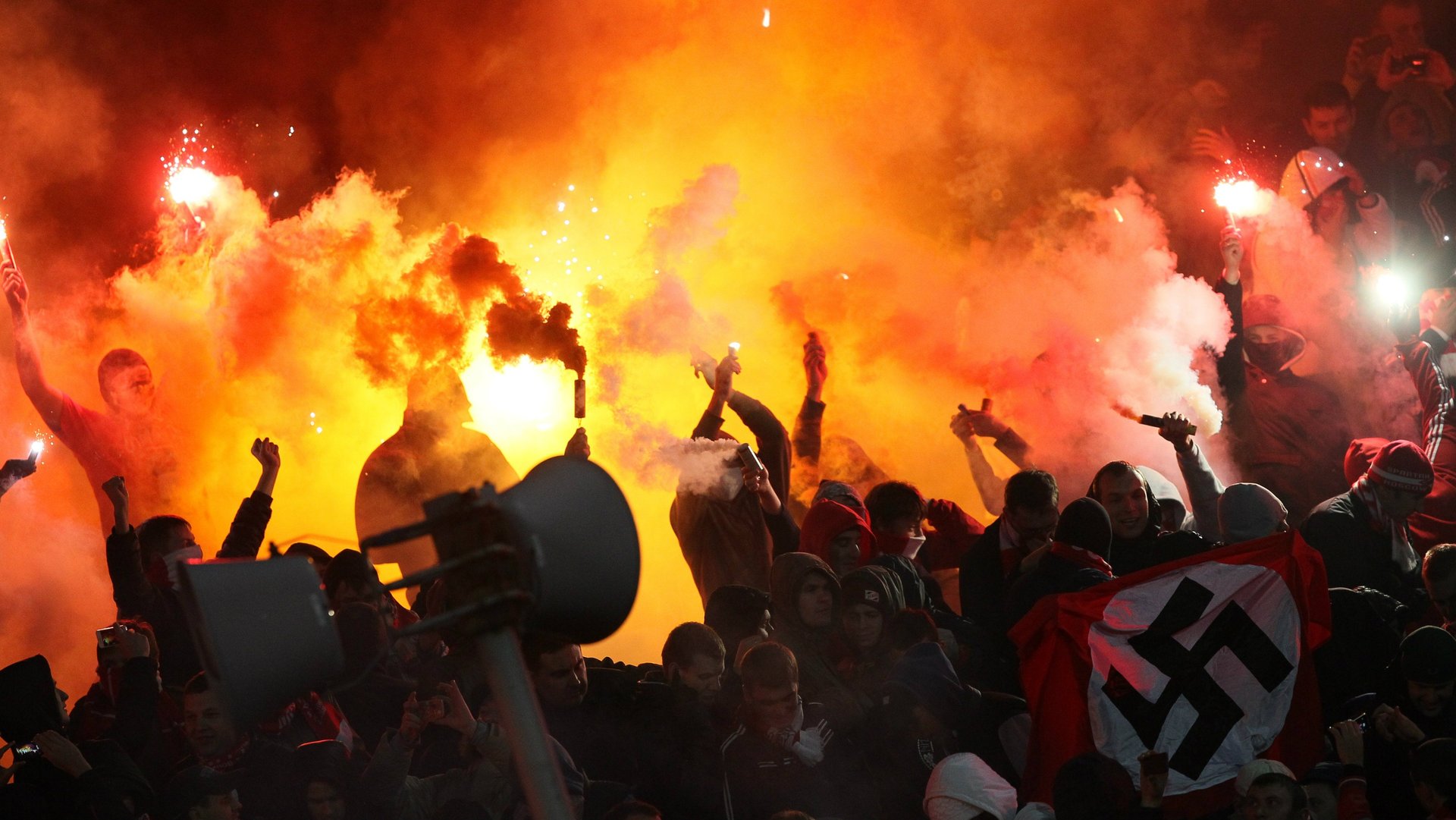The 2018 World Cup will feature a new soccer official: an antiracism inspector
For years, Russia has struggled against accusations of racism in football. As the country gets ready to host the 2018 World Cup, it is working hard to dispel that image: The Russian Football Federation (RFS) has announced new “antiracism inspectors” to stop prejudice in the stands, the New York Times reports.


For years, Russia has struggled against accusations of racism in football. As the country gets ready to host the 2018 World Cup, it is working hard to dispel that image: The Russian Football Federation (RFS) has announced new “antiracism inspectors” to stop prejudice in the stands, the New York Times reports.
It won’t be easy. Russian football fans have been known to direct monkey chants at visiting black players. In 2011, Brazilian legend and former Real Madrid defender Roberto Carlos had a banana thrown at him during a match while playing for a Russian club. Another Brazilian star, Hulk, who plays for Zenit St. Petersburg, was subjected to racist taunts from his own club’s fans who felt black players went against their team’s “identity.”
These are not isolated incidents. Over the last two seasons, there have been a total of 155 “racist and far right incidents” in Russian leagues, according to a report released earlier this year. International players are running out of patience; after facing racist abuse from Moscow fans in 2013, Manchester City’s Yaya Touré threatened to boycott the 2018 World Cup.
Instituting a World Cup antiracism inspector will be a first for the tournament—but will it be enough?
Antiracism inspectors were first introduced by the RFS in March to tackle racism in Russian leagues. At the time, the new RFS antiracism head Alexei Tolkachev said, “We expect that changes to our regulations will be made by the end of the month and that we will be able to send [anti-racism] inspectors to the final matches of the season.” After three years trying to prevent racist incidents with local teams and fans, these inspectors will bring their expertise to the World Cup.
Yet the challenge remains for Russia to prove it takes racism in football seriously. In September, Alexei Smertin, former captain of the Russian national team and his country’s ambassador for the World Cup bid, simply told the BBC: ”There’s no racism in Russia, because it does not exist.”
Russian officials have acknowledged moments of racism—but seem to struggle with the idea of a systemic problem. ”Sometimes fans shout racist things but we take measures,” Vitaly Mutko told the BBC in February, downplaying the issue. “There are punishments. I don’t think we stand out on this issue. There are lots of black players here and I don’t see any problem.” And Tolkachev, the very man tasked with eliminating racism in Russian football, recently told the New York Times that “We in Russia take this problem very seriously,” and later in the same interview: “We don’t consider [racism] a serious problem.”
“I don’t think there is a total denial of racism in Russia,” Yuri Boychenko, head of the Anti-Discrimination Section at the United Nations Human Rights Office of the High Commissioner, told Reuters in July. “But there is certainly a lack of understanding by officials in Russia of what racism is.”
Until Russian officials appreciate the full extent of the problem, antiracism inspectors will be a weak fix to racism in the game.